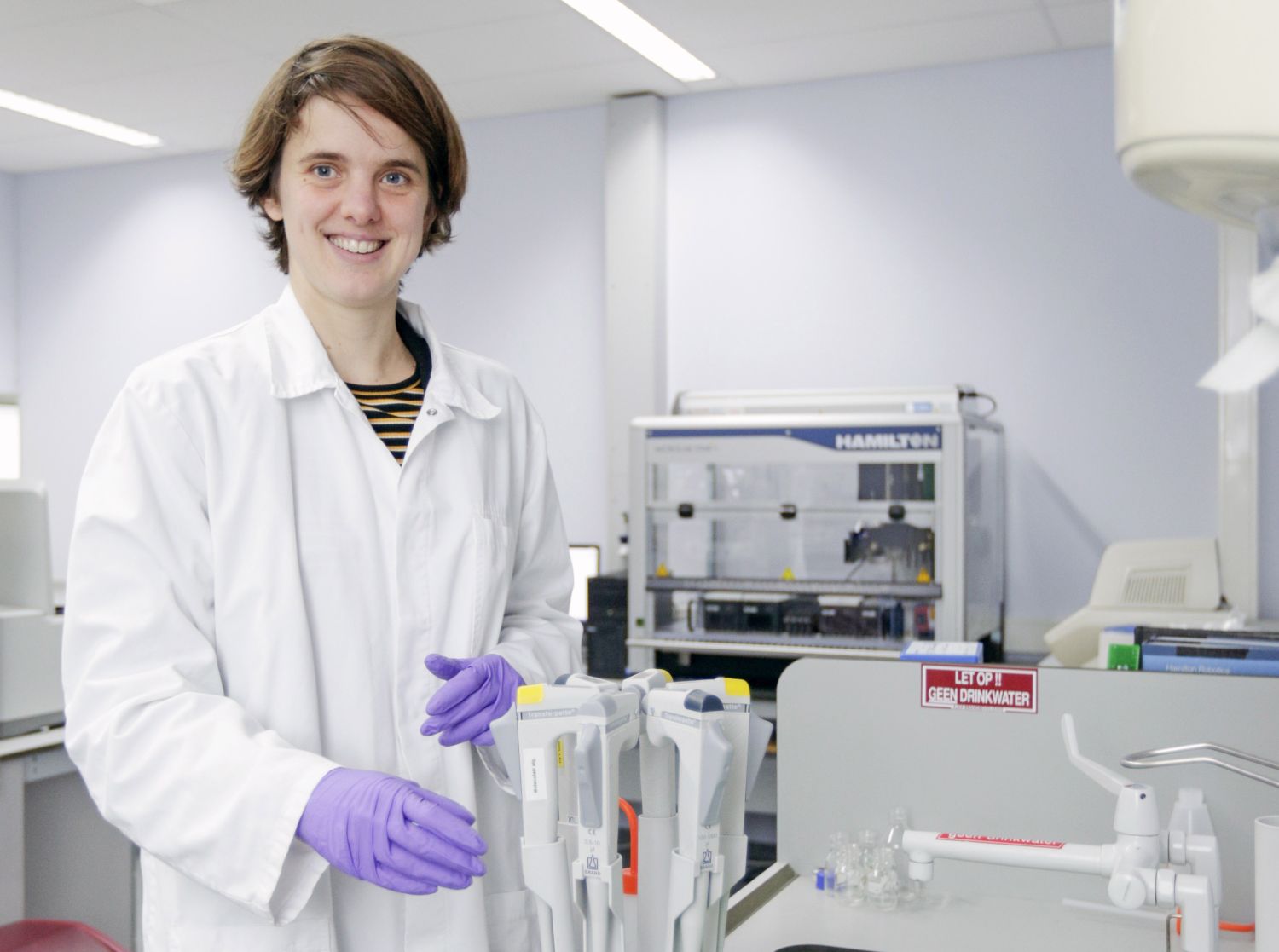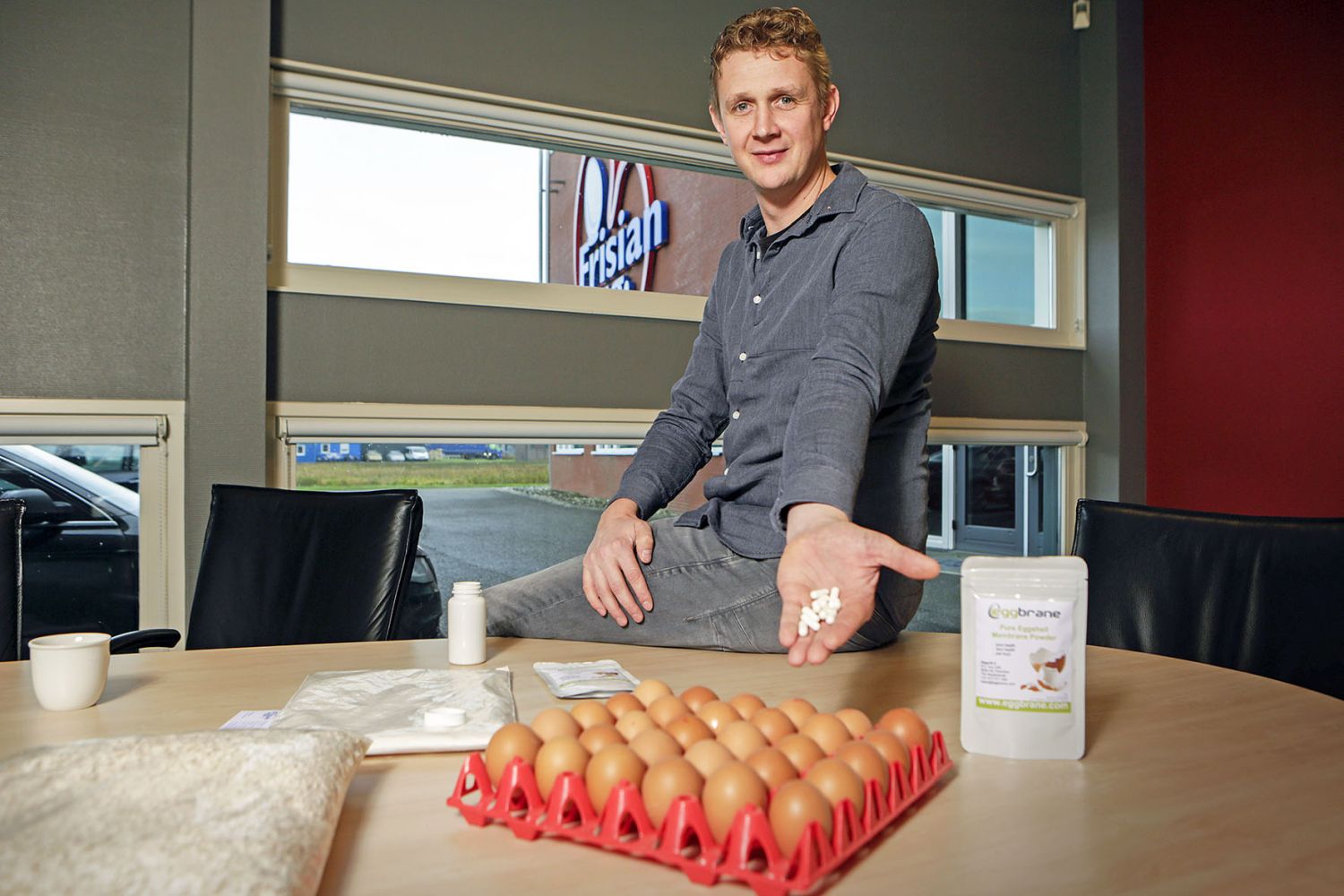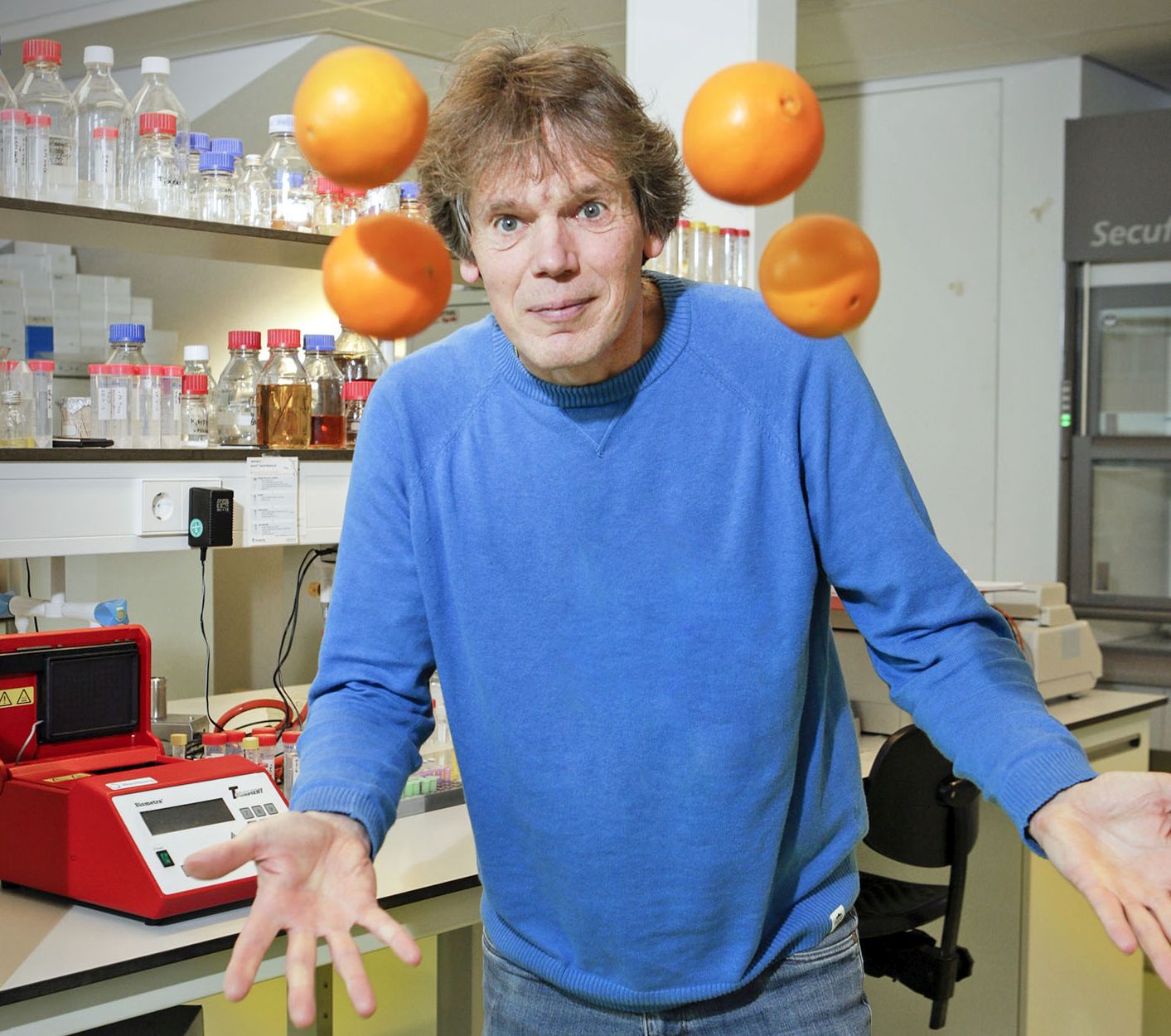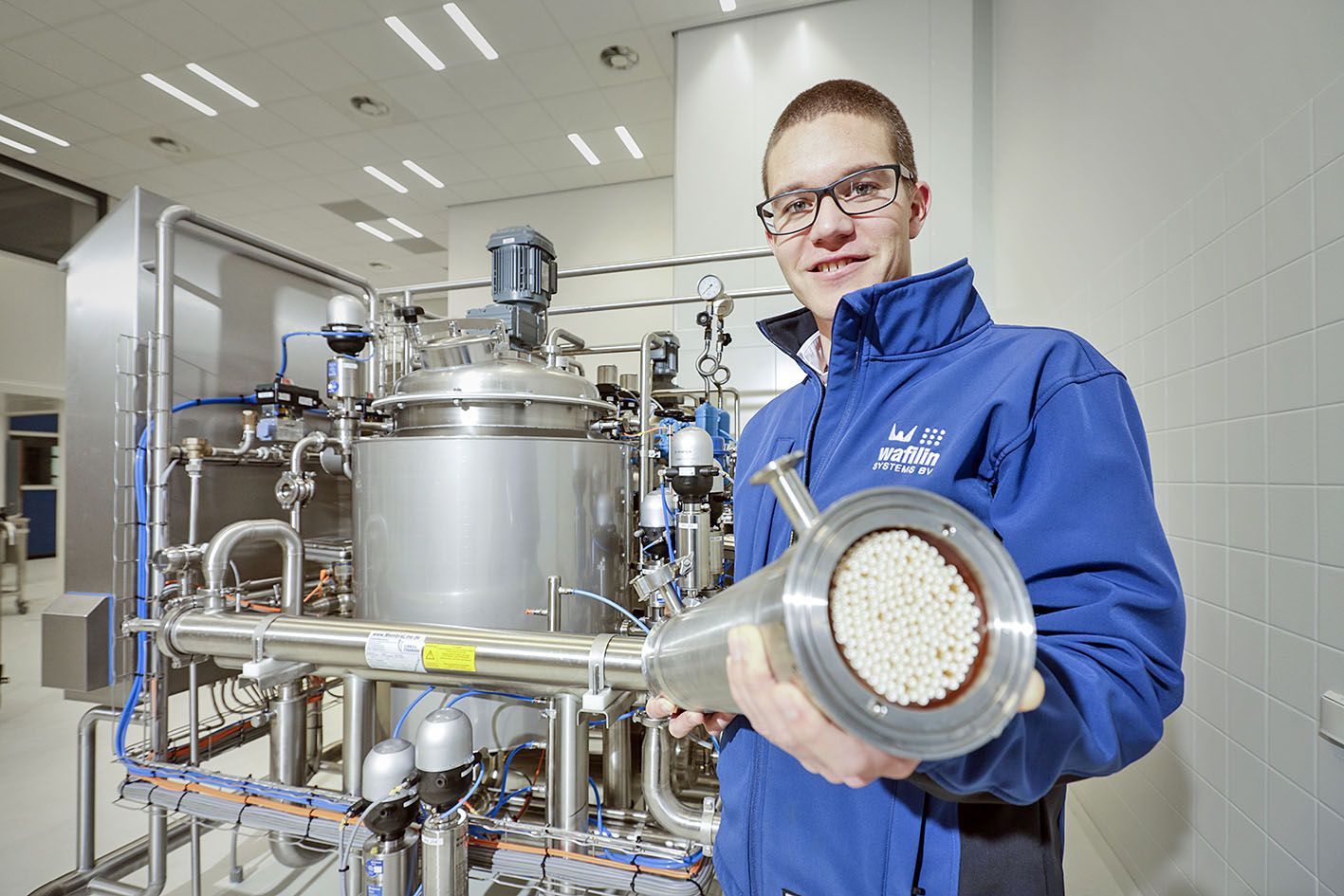There are few places where the concentration of food companies is as strong as in the Northern Netherlands and the Dutch-German border region. For entrepreneurs who want to remain competitive, development of new and better products and processes is indispensable. FOOD2020 helps them do that.
The first phase of the European-funded project has now been completed. In more than two years, FOOD2020 spent 5.2 million euros on strengthening the food sector in the German-Dutch border region. 112 companies were able to develop new products and processes within 10 innovation projects and 27 feasibility studies. 452 companies participated in the events organized under the banner of FOOD2020.
Excellent numbers, says Herman de Vries. Together with Lyanne Ausema, De Vries leads the regional direction of FOOD2020. The figures show the innovation ambition in the food sector, says De Vries. But they also show that companies are open to support in their quest for innovation.
Comprehensive
Starch, sugar, milk, meat and eggs. But also vegetables, fruit and bakery products - products with which agriculture in the Northern Netherlands has grown large and is among the world's best. In the wake of agriculture, an extensive processing sector plus a large group of supplying companies has grown. 'The entire food sector chain is an incredibly important economic factor in the Northern Netherlands. The opportunities there justify the attention to it from the NOM,' says De Vries. 'The sector provides jobs, is important for the regional economy and for the (international) competitive position of the region.
In the Netherlands we do a bit more with milk, in Germany they are a bit more focused on meat. Otherwise, the structure of the food sector is very similar: a few large image-defining companies such as Friesland Campina and Avebe, and a large group of SMEs.
Press
The pressure on the latter group of companies in particular to change faster has increased. Because in a world where the pace of innovation is breakneck and innovations follow each other in rapid succession, companies have to keep up. 'The challenges have increased,' says De Vries, certainly also because society demands more sustainable production methods and because consumers want more sustainable food and healthier products. With less sugar, animal protein or salt, for example.
Many companies in food have limited room to adapt to these developments, Ausema says. This is partly because they are often somewhat traditional in nature, often family businesses, and more focused on continuity than on innovation. Also, new insights and techniques regarding healthier and more sustainable food have not yet penetrated all SMEs. While those new insights and techniques are precisely what is needed to at least stay afloat and preferably to grow.
On top of that, volume expectations for new products in retail are very high. To get new products on supermarket shelves requires delivery right away in quantities that SME companies have difficulty with.
Risky
'Innovation is risky,' De Vries adds. 'Often companies do it a bit on the side and innovation consists of taking small steps, think of a modification of the product. When an entrepreneur can reduce the cost of it, he can take steps he wouldn't have done otherwise.' That is exactly what FOOD2020 manages to achieve with its innovation projects, feasibility studies and think tanks, De Vries underlines.
The support also allows companies to hire someone who can work full-time on the subject. Which helps a company escape the delusion of the day. Ausema: "If you really want disruptive innovation in a company, there has to be a continuous focus on innovation. With a project budget of 135,000 to 275,000 euros, the innovation projects here are especially effective.'
Strong instruments
FOOD2020 builds on the successful Interreg project FoodFuture, which ended in 2016 and helped 188 companies innovate. 'From that, we took the strongest instruments for FOOD2020,' De Vries explains. 'Those are the innovation pathways, feasibility studies and mentoring programs. Half of the project costs are subsidized by FOOD2020.
In the middle of last year, FOOD2020 started phase two. While in the first part of the project the emphasis was on technology, now the focus is on social and societal challenges for the sector, food security and food safety, sustainable foods, healthy nutrition and social innovations.De Vries: 'We already have another nice portfolio of projects
with initiatives that have music in them.'
WHAT IS FOOD2020?
FOOD2020 stimulates and strengthens companies in the food sector. The project does this by helping entrepreneurs who want to innovate and raise their knowledge to a higher level, so that they can develop new and better products and improve production processes. So that they can develop new and better products and improve production processes. This is done through innovation projects, feasibility studies and network meetings. Science, economics, theory and practice come together in FOOD2020.
Cross-border cooperation is important in FOOD2020. In the projects, Dutch and German companies or knowledge institutions jointly contribute. FOOD2020 thus strengthens the competitiveness of the food sector as a whole, on both sides of the border. FOOD2020 is coordinated by the Deutsches Institut für Lebensmitteltechnik (DIL) together with six partners from the Dutch-German border region, including NOM.
DAIRYRIJCK - THE DAIRY PIONEER
René van der Veen's organic dairy adventure with Zuivelrijck has taken off nicely. Van der Veen has succeeded in developing the segment for long-life organic dairy products. If you succeed with a distinctive product in a niche market, reasoned Van der Veen, then it is no longer interesting for anyone else to focus on it as well. He was proved right.
In a short time, the organic coffee creamer cups became especially popular with catering entrepreneurs, who were eager to meet customer demand for organic products. What also helped was that the serious baristas highly valued the ordinary long-life organic milk that Zuivelrijk introduced. For the introduction, Van der Veen had a feasibility study done via FOOD2020 into the production of organic coffee milk without the stabilizer E339, which is not allowed in products labeled organic.'We took advantage of FOOD2020's network,' says Van der Veen. 'Moreover, the support from FOOD2020 shortened the development process of the cups. Zuivelrijck was thus able to start a new innovation process at an accelerated pace and make another leap in growth.

MICROBIAL ANALYSIS - A PURE BACTERIAL CULTURE
The innovation project of Meat Cracks, IP&D, Direct Starter and Microbial Analysis brought together the knowledge of one company and the issues of others. It yielded new products and insights, market opportunities and an innovative production line. German company Meat Cracks produces bacterial starter cultures for the meat industry. The company supplies meat manufacturers worldwide and needed further optimization of the cultures. IP&D specializes in drying techniques. Direct starter is responsible for fermentation testing.
Through FOOD2020, the companies came into contact with each other. Microbial Analysis was able to use its dna analysis to accurately determine how bacterial cultures behave during fermentation and freeze-drying, providing meat manufacturers with valuable information on why some cultures work and others less so. The collaboration is a textbook example of a successful cross-border innovation project. Because Microbial Analysis also learned a lot. Among other things, about the application of the dna analysis technique and the information contained in the data. 'We have become an important player in the market,' says microbiologist Elsemiek Croese. 'Everywhere where fermentation processes are applied or where bacteria do their work, we can get to work.'

FRISIAN EGG - MORE VALUE FROM THE EGG
Looking for a better use for its egg shells, Frisian Egg mined a new market. With help from FOOD2020, Frisian Egg developed a process to separate membranes from eggshells and explored market opportunities for the product.
Frisian Egg sought application of the membranes, the skins between shell and egg. After all, they are full of useful ingredients such as collagen, chondroitin and hyalonic acid. The company in Drachten succeeded in separating the membranes and making them storable in such a way that it can go out. The dried sheets now find their way in powder form under the name EggBrane to the pharmaceutical industry and to food companies that use them to make products for diabetics, for example.
A FOOD2020 feasibility study gave Frisian Egg more certainty about the market opportunities for the membrane powder. With the help of FOOD202, a study was also set up to substantiate EggBrane's health claim. "It gave us a good insight into the potential of EggBrane," says Rolf Stuiver of Frysian Egg.

SYLPHIUM - THE GENE HUNTER
The potential of his invention is "enormous. The expectations of director-owner-scientist Eelco Wallaart of Sylphium regarding his orange flavoring are high. Wallaart is a phytochemist. He studies which substances occur in plants and what exactly they do. He is mainly concerned with isolating substances with certain genetic properties.
This made him successful, as it made him the spiritual father of a widely used malaria drug. After selling his malaria invention, Wallaart continued his research in the direction of flavorings. It put him on the trail of an orange flavoring, which he was able to make by isolating a gene from a plant that grows only in the tropics in the Far East. Through FOOD2020, Wallaart was able to complete a feasibility study of applications and market opportunities, and FOOD2020 gave Sylphium assurances about how the product would do in the marketplace. "If I hadn't had that grant, I wouldn't have gotten this far with the product," states Wallaart, who hopes for a success similar to that of the malaria drug.

WAFILIN - PURE BRINE WATER
With the design and manufacture of a special filter system, Wafilin Systems from Leeuwarden made a major contribution to improving DOC Kaas' production process. White and cloudy, the brine goes in. Clear again, it comes out of the cheese factory's Wafilin filter system.
Wafilin builds filter systems that use membranes to remove components from a stream of product. For the cheese factory, Wafilin designed a process to clean brine water under low pressure with a low turnover rate and thus with little energy and at low cost. Jos van Dalfsen of Wafilin: "It had to be very energy-efficient and at low cost. After all, DOC was not going to make more cheese because of it. Moreover, it was not allowed to affect the ripening process or the taste.'
The entire development process was supported from FOOD2020. 'Our project fitted within the theme 'Hygiene in Dairy Industry,' and we were able to reduce the costs of employing and supervising our engineers thanks to FOOD2020. We were therefore able to go the extra mile.'

Want to know more about Food2020?
